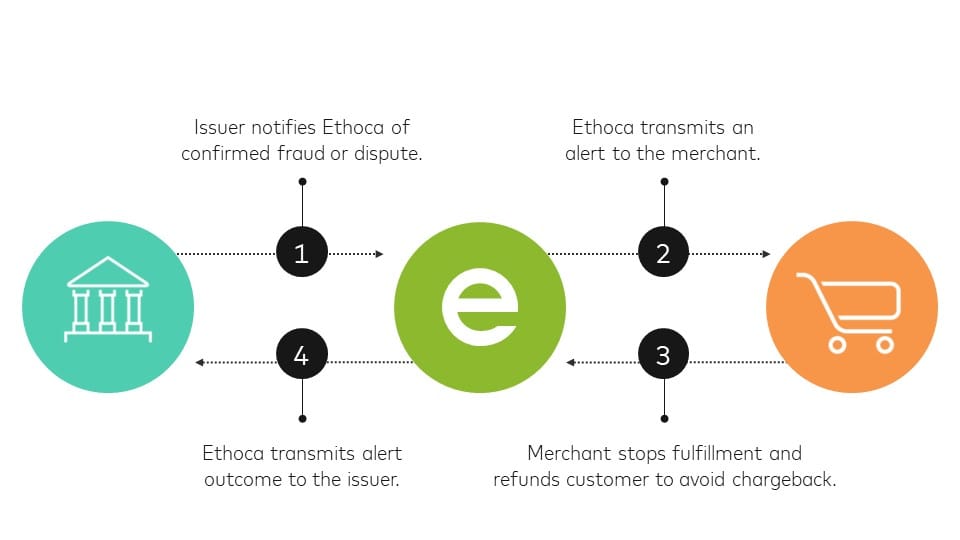
SuperPay helps accountants like yourself get paid as quickly as possible. Choose our platform to power your one-off and recurring billing.
In today's digital age, social media has become an integral part of our daily lives. From connecting with friends and family to staying updated on the latest trends and news, social media platforms have revolutionized the way we communicate and interact. But its impact goes beyond personal use – it has become a powerful tool for businesses, including accountants, to reach their target audience and grow their brand.
In this blog post, we will explore the effectiveness of social media marketing specifically for accountants. We will delve into the basics of social media marketing and its importance for accountants, highlighting the benefits it can bring to their practice. Additionally, we will discuss practical strategies on how accountants can effectively utilize social media to build a strong online presence, engage with clients and prospects, and share valuable content.
To provide a comprehensive understanding of the topic, we will also present real-life case studies of accountants who have successfully leveraged social media marketing to expand their client base, improve client retention, and enhance their brand reputation. However, it is important to acknowledge that social media marketing for accountants does come with its challenges and potential drawbacks, such as time and resource constraints, maintaining professionalism online, and dealing with negative feedback.
By the end of this blog post, you will have a clear understanding of the effectiveness of social media marketing for accountants and gain valuable insights on how to navigate this powerful marketing tool in the accounting industry. So, whether you are a seasoned accountant looking to enhance your online presence or a newcomer to the field wanting to explore new marketing avenues, this blog post will provide you with the knowledge and strategies you need to succeed. Stay tuned!
Understanding Social Media Marketing: Basics and Importance
Social media marketing has emerged as a dynamic and influential marketing strategy for businesses across various industries. Before diving into the effectiveness of social media marketing for accountants, it is crucial to understand the basics of this marketing approach and recognize its importance in today's digital landscape.
What is Social Media Marketing?
Social media marketing involves the use of social media platforms, such as Facebook, Twitter, LinkedIn, Instagram, and YouTube, to promote a brand, engage with an audience, and drive business objectives. It goes beyond simply having a presence on these platforms; it requires a strategic approach to leverage the unique features and capabilities of each platform.
The Importance of Social Media Marketing for Accountants
Broad Audience Reach: Social media platforms have billions of active users worldwide, offering accountants an opportunity to reach a vast audience. With well-crafted content and targeted advertising, accountants can connect with potential clients, industry professionals, and even influencers who can advocate for their services.
Increased Client Engagement: Social media provides a platform for accountants to engage and interact with their current and potential clients on a more personal level. It allows for direct communication, enabling accountants to address queries, provide valuable insights, and build strong relationships with their audience.
Improved Brand Visibility: Establishing a strong online presence through social media can significantly increase the visibility and awareness of an accountant's brand. By consistently sharing valuable content, engaging with followers, and showcasing expertise, accountants can position themselves as trusted authorities in their field, leading to increased brand recognition and credibility.
Enhanced Networking Opportunities: Social media platforms offer a unique opportunity for accountants to expand their professional network. By connecting with fellow accountants, industry influencers, and potential referral sources, accountants can tap into a vast network of opportunities, collaborations, and knowledge sharing.
Cost-Effective Marketing Strategy: Compared to traditional marketing methods, social media marketing can be a cost-effective approach for accountants. Many social media platforms offer targeted advertising options, allowing accountants to reach specific demographics, locations, and interests, maximizing their marketing budget's effectiveness.
Understanding the basics and importance of social media marketing sets the foundation for accountants to explore its potential benefits and devise effective strategies. In the following sections, we will delve deeper into how accountants can leverage social media marketing to their advantage and achieve their business goals.

Why Social Media Marketing is Important for Accountants
Social media marketing plays a crucial role in the success of accountants in today's digital landscape. In this section, we will explore the specific reasons why social media marketing is important for accountants and how it can positively impact their practice.
Broad Audience Reach
One of the primary advantages of social media marketing for accountants is the ability to reach a broad audience. With billions of active users across various social media platforms, accountants have the opportunity to connect with individuals, businesses, and organizations that may be potential clients or referral sources. By crafting compelling content and implementing effective targeting strategies, accountants can expand their reach beyond their immediate network and tap into a wider audience.
Increased Client Engagement
Social media platforms provide a unique avenue for accountants to engage with their clients and prospects on a more personal and interactive level. Through features such as comments, direct messages, and live chats, accountants can directly communicate with their audience, address inquiries, and provide valuable insights. This level of engagement helps build trust, foster stronger relationships, and establish the accountant as a reliable resource in their field.
Improved Brand Visibility
Establishing a strong online presence through social media can significantly enhance the visibility of an accountant's brand. By consistently sharing relevant and valuable content, showcasing expertise through thought leadership, and actively engaging with followers, accountants can boost their brand visibility and recognition. This increased visibility can lead to brand recall and enhanced credibility among potential clients and industry professionals.
Enhanced Networking Opportunities
Social media platforms offer a wealth of networking opportunities for accountants. By connecting with fellow professionals, industry influencers, and potential referral sources, accountants can expand their professional network and tap into a wide range of opportunities. Engaging in discussions, participating in relevant groups, and sharing insights can help accountants establish themselves as trusted authorities in their field and open doors to collaborations, partnerships, and referrals.
Cost-Effective Marketing Strategy
Compared to traditional marketing methods, social media marketing offers a cost-effective approach for accountants. Many social media platforms provide targeted advertising options, allowing accountants to reach their desired audience based on demographics, interests, and location. This targeted approach ensures that accountants are investing their marketing budget efficiently by reaching those who are most likely to have an interest in their services.
In summary, social media marketing is important for accountants due to its ability to broaden their audience reach, increase client engagement, improve brand visibility, enhance networking opportunities, and provide a cost-effective marketing strategy. By leveraging the power of social media, accountants can effectively promote their services, establish themselves as industry experts, and ultimately grow their practice.
How to Effectively Utilize Social Media Marketing as an Accountant
To effectively utilize social media marketing as an accountant, it is essential to implement strategic approaches that align with your goals and resonate with your target audience. In this section, we will explore key strategies and best practices for accountants to harness the power of social media effectively.
Creating a Strong Online Presence
Define Your Brand: Start by clearly defining your brand identity, including your unique value proposition, target audience, and key messaging. This will help shape your social media content and ensure consistency across platforms.
Choose the Right Platforms: Identify the social media platforms that are most relevant to your target audience and align with your goals. Consider platforms such as LinkedIn for professional networking, Twitter for real-time updates, and Instagram for visual storytelling.
Optimize Your Profiles: Create professional and visually appealing profiles on each platform, utilizing high-quality images, a concise and engaging bio, and relevant contact information. Use keywords and hashtags to enhance discoverability.
Engaging with Clients and Prospects
Listen and Respond: Actively monitor your social media channels for comments, messages, and mentions. Respond promptly and thoughtfully to inquiries, feedback, and questions, demonstrating your commitment to client satisfaction and engagement.
Share Valuable Content: Provide your audience with valuable and educational content that addresses their pain points and offers solutions. Share industry insights, tips, and updates that showcase your expertise and position you as a trusted resource.
Encourage User-generated Content: Foster engagement and loyalty by encouraging clients to share their positive experiences and testimonials on social media. Repost and acknowledge their contributions, further strengthening your brand reputation.
Sharing Useful and Relevant Content
Develop a Content Strategy: Outline a content strategy that aligns with your target audience's interests and needs. Plan a mix of content types, such as educational articles, infographics, videos, and case studies, to keep your feed diverse and engaging.
Educate and Inform: Share informative content that educates your audience about accounting best practices, tax updates, financial planning tips, and other relevant topics. Aim to position yourself as a trusted advisor and resource.
Utilize Visuals: Visual content tends to grab attention and increase engagement. Incorporate visually appealing elements, such as charts, graphs, and images, to enhance the impact of your content.
Utilize Hashtags: Research and use relevant hashtags to increase the discoverability of your content. Hashtags help categorize your posts and make them more visible to users interested in specific topics or industries.
Incorporating these strategies will help accountants effectively utilize social media marketing to build a strong online presence, engage with clients and prospects, and share valuable content. By consistently implementing these practices, accountants can establish themselves as trusted industry experts, attract new clients, and foster long-term relationships.
Case Studies: Success Stories of Accountants Using Social Media Marketing
To truly understand the effectiveness of social media marketing for accountants, it's valuable to examine real-life case studies of accountants who have successfully utilized this marketing strategy. In this section, we will explore a few compelling success stories that demonstrate the positive impact of social media marketing on accountants' practices.
Increased Client Base
Case Study 1: Smith & Associates Accounting
Smith & Associates Accounting, a small accounting firm based in New York City, experienced a significant increase in their client base after implementing a strategic social media marketing campaign. They consistently shared informative content on various platforms, addressing common accounting challenges and offering practical tips. By engaging with their audience through comments and messages, they built a reputation for personalized service and expertise. As a result, they attracted new clients who were impressed by their online presence and felt confident in their abilities.
Improved Client Retention
Case Study 2: Johnson Tax Services
Johnson Tax Services, a tax preparation firm in Chicago, focused on leveraging social media to improve client retention. They utilized platforms like Facebook and LinkedIn to stay connected with their existing clients throughout the year, providing regular tax-related updates and reminders. By demonstrating their commitment to client success and providing valuable resources, they fostered a sense of loyalty and trust. As a result, their clients were more likely to return each year for their tax preparation needs, leading to improved client retention rates.
Enhanced Brand Reputation
Case Study 3: Thompson Financial Consulting
Thompson Financial Consulting, a financial advisory firm in London, used social media marketing to enhance their brand reputation and establish themselves as industry experts. They consistently shared educational content on LinkedIn and Twitter, including articles, videos, and infographics on topics such as retirement planning, investment strategies, and tax optimization. Their informative and valuable content positioned them as thought leaders in their field, attracting not only clients but also media attention. Their enhanced brand reputation resulted in increased credibility and opportunities for speaking engagements and media interviews.
These case studies highlight the diverse ways in which social media marketing can positively impact accountants' practices. From attracting new clients and improving client retention to enhancing brand reputation and opening doors to new opportunities, social media marketing has proven to be an effective tool for accountants who strategically utilize it.
By studying these success stories, accountants can gain insights into the practical implementation of social media marketing strategies and adapt them to their own practice. However, it's important to note that each accountant's journey will be unique, and it's crucial to tailor social media strategies to their specific target audience, goals, and brand identity.
Challenges and Potential Drawbacks of Social Media Marketing for Accountants
While social media marketing offers numerous benefits for accountants, it is essential to acknowledge the potential challenges and drawbacks that may arise. In this section, we will explore some of the common challenges accountants may face when utilizing social media marketing and discuss strategies to overcome them.
Time and Resource Constraints
Maintaining an active and engaging social media presence requires a significant investment of time and resources. Accountants often have busy schedules, and dedicating sufficient time to create, curate, and schedule content can be challenging. To overcome this challenge:
Create a Content Calendar: Plan your social media content in advance by creating a content calendar. This allows you to map out your content strategy, schedule posts in advance, and ensure consistency.
Leverage Automation Tools: Utilize social media management tools like Hootsuite or Buffer to schedule posts and automate certain tasks. This can save time and streamline your social media activities.
Delegate or Outsource: Consider delegating social media responsibilities to a team member or hiring a social media manager to handle the day-to-day management of your accounts, allowing you to focus on your core accounting tasks.
Maintaining Professionalism Online
Accountants must maintain a professional image and uphold ethical standards when engaging on social media platforms. It's important to remember that anything shared online can have a lasting impact on your reputation. To navigate this challenge:
Establish Social Media Guidelines: Develop clear guidelines for yourself and your team on what is acceptable and professional behavior on social media. This includes refraining from sharing sensitive client information and avoiding controversial or inappropriate discussions.
Think Before You Post: Always think twice before posting anything on social media. Consider the potential impact and how it aligns with your professional image and brand. It's better to err on the side of caution and maintain a conservative approach.
Engage with Respect and Professionalism: When responding to comments or engaging in discussions, always maintain a respectful and professional tone. Avoid engaging in arguments or responding defensively to negative feedback. Instead, address concerns professionally and seek to resolve issues privately if necessary.
Dealing with Negative Feedback
Social media platforms provide individuals with a platform to voice their opinions, and negative feedback or criticism can occur. It's important to handle such situations tactfully and professionally:
Respond Promptly and Thoughtfully: When faced with negative feedback, respond promptly and address the concerns in a calm and empathetic manner. Show that you value their feedback and are committed to resolving any issues.
Take the Conversation Offline: If the issue requires further discussion or resolution, encourage the individual to reach out to you privately through direct messages or email. This allows you to address their concerns in a more personalized and private manner.
Learn from Feedback: Instead of viewing negative feedback as a setback, use it as an opportunity for growth and improvement. Take constructive criticism into account and make necessary changes to enhance your services or communication.
By being aware of these potential challenges and implementing strategies to overcome them, accountants can navigate the world of social media marketing more effectively and maximize its benefits while mitigating potential drawbacks.


